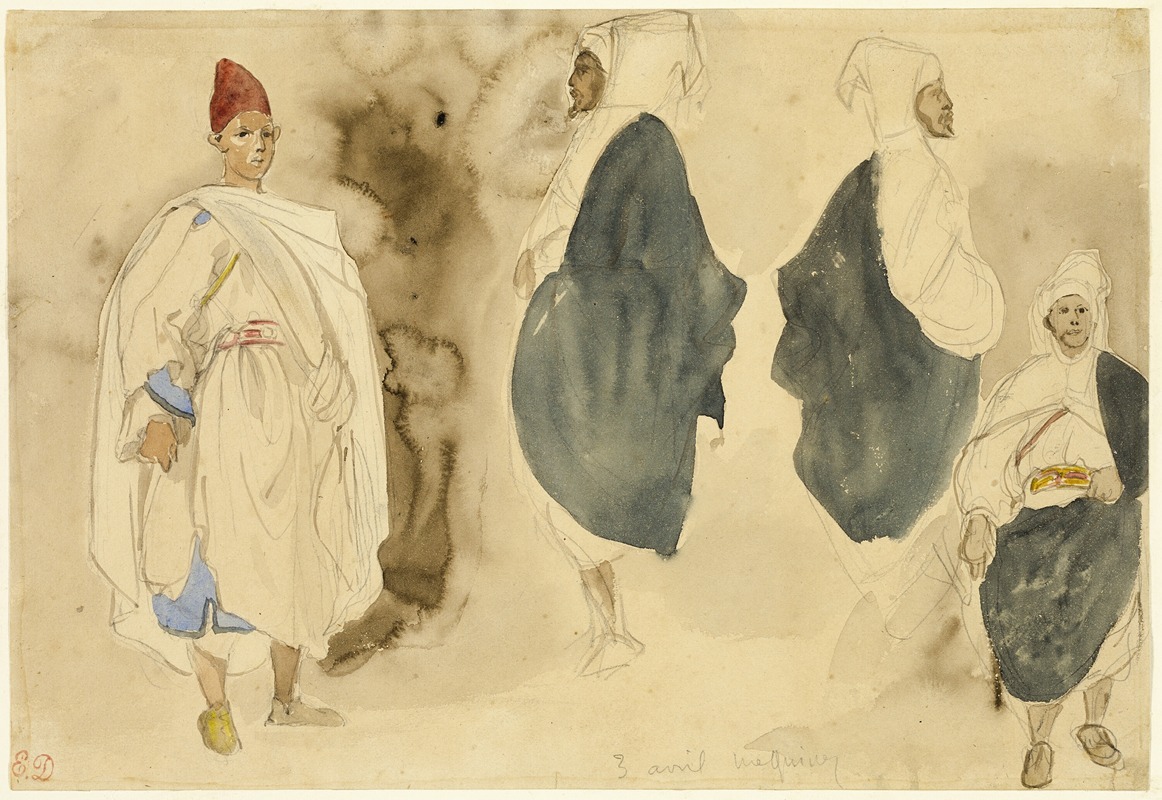
Four Sketches of Arab Men
A hand-painted replica of Eugène Delacroix’s masterpiece Four Sketches of Arab Men, meticulously crafted by professional artists to capture the true essence of the original. Each piece is created with museum-quality canvas and rare mineral pigments, carefully painted by experienced artists with delicate brushstrokes and rich, layered colors to perfectly recreate the texture of the original artwork. Unlike machine-printed reproductions, this hand-painted version brings the painting to life, infused with the artist’s emotions and skill in every stroke. Whether for personal collection or home decoration, it instantly elevates the artistic atmosphere of any space.
"Four Sketches of Arab Men" is a drawing by the French Romantic artist Eugène Delacroix. Delacroix, born on April 26, 1798, and died on August 13, 1863, is widely regarded as one of the most influential figures in the Romantic movement. His works are known for their vibrant color, dynamic compositions, and expressive brushwork.
The drawing "Four Sketches of Arab Men" is a testament to Delacroix's fascination with the cultures and people he encountered during his travels. In 1832, Delacroix embarked on a journey to North Africa, specifically Morocco, Algeria, and Tunisia, as part of a diplomatic mission. This trip had a profound impact on his artistic vision and provided him with a wealth of inspiration for his subsequent works.
"Four Sketches of Arab Men" captures Delacroix's keen interest in the people and customs of North Africa. The drawing features four individual studies of Arab men, each depicted in a distinct pose and attire. Delacroix's attention to detail and his ability to convey the character and dignity of his subjects are evident in these sketches. The men are portrayed with a sense of realism and respect, reflecting Delacroix's admiration for the people he encountered.
The medium used for "Four Sketches of Arab Men" is likely pencil or ink on paper, which was a common choice for Delacroix's preparatory studies and sketches. These drawings often served as references for his larger, more elaborate paintings. Delacroix's sketches are characterized by their fluid lines and dynamic compositions, capturing the essence of his subjects with remarkable economy of means.
Delacroix's North African journey not only influenced his artistic style but also contributed to the broader Romantic fascination with the "Orient," a term used in the 19th century to describe the cultures of the Middle East and North Africa. His works from this period, including "Four Sketches of Arab Men," played a significant role in shaping Western perceptions of these regions.
The drawing is part of Delacroix's extensive body of work that explores themes of exoticism, cultural diversity, and human emotion. His ability to convey the richness and complexity of different cultures through his art has earned him a lasting legacy in the history of art.
"Four Sketches of Arab Men" exemplifies Delacroix's skill as a draughtsman and his deep engagement with the world around him. It stands as a valuable piece of art that offers insight into the artist's creative process and his encounters with the diverse cultures of North Africa. Today, Delacroix's works, including this drawing, continue to be celebrated for their artistic merit and their contribution to the Romantic movement.





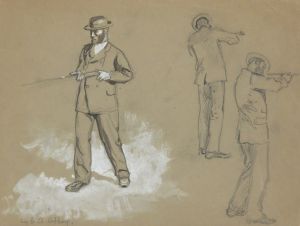
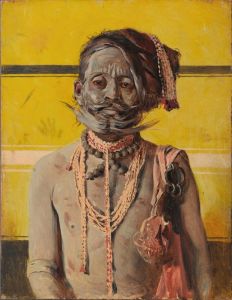
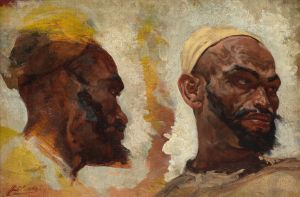
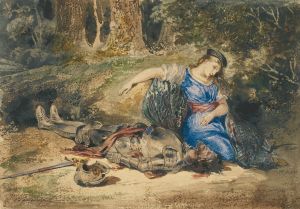
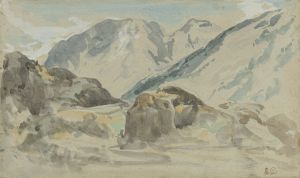
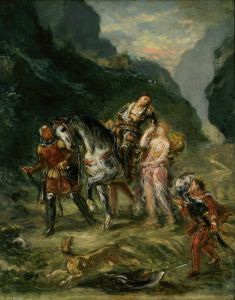
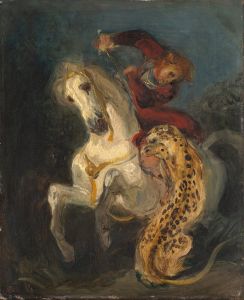
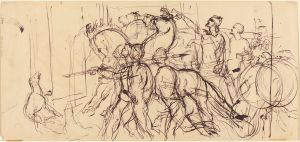
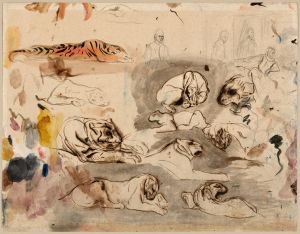
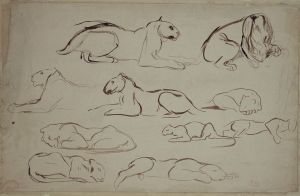
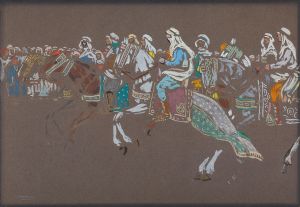
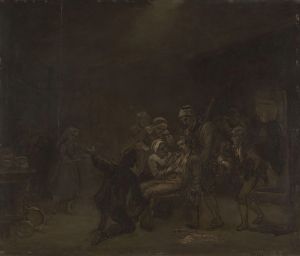
![Miscellaneous small sketches for inlaid table tops.] [Design with orange and yellow geometric motif](/imgs/249438/s/winold-reiss-miscellaneous-small-sketches-for-inlaid-table-tops-design-with-orange-and-yellow-geometric-motif-9009d68a.jpg)